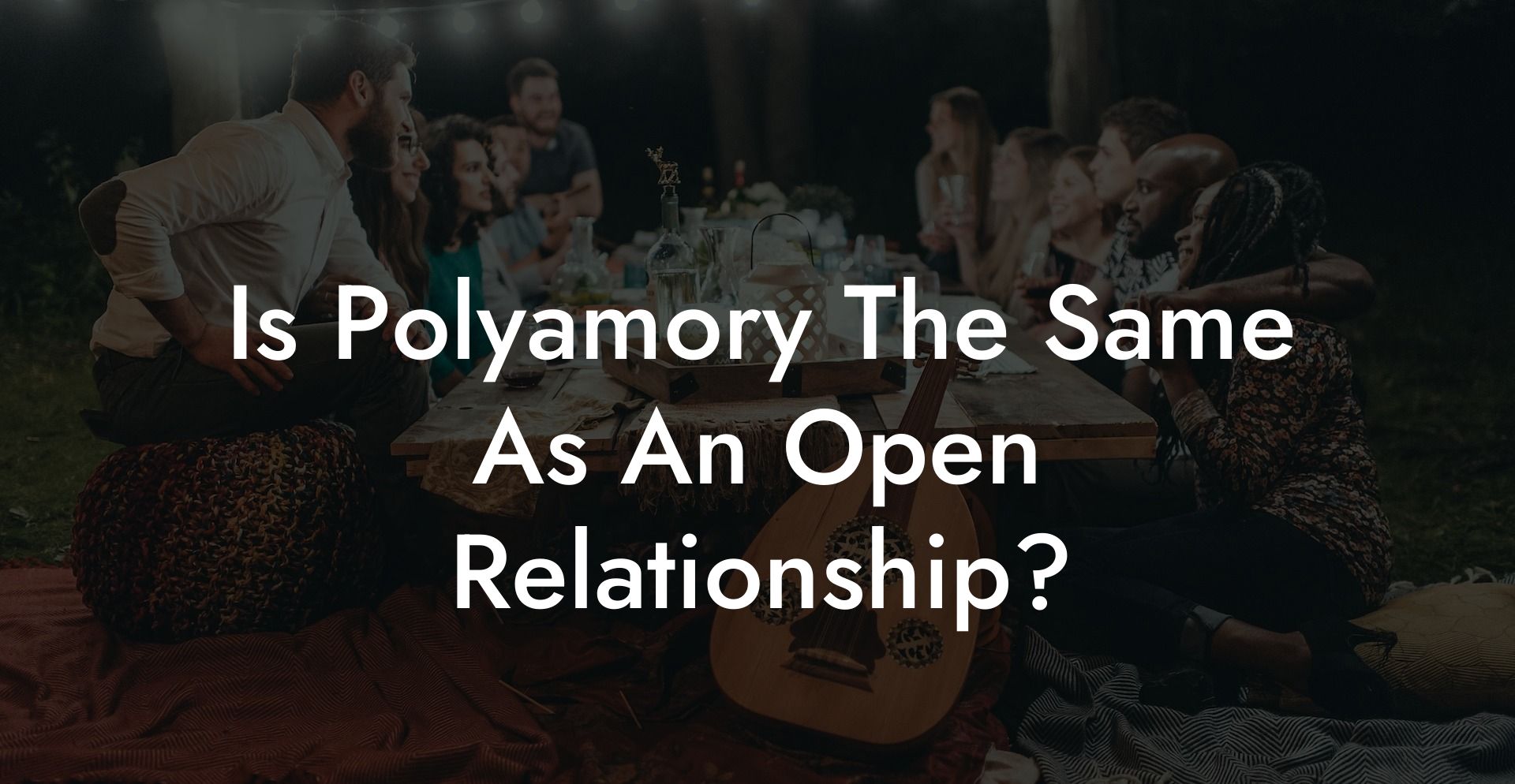In the ever-evolving landscape of human relationships, two lifestyle choices have gained significant attention in recent years—polyamory and open relationships. As more people question the conventional notions of monogamy, there's increasing curiosity about the different types of non-monogamous relationships, including whether polyamory is the same as an open relationship. So, let's dive into these lifestyles to uncover their similarities, differences, and personal significance for those embracing them.
Is Polyamory The Same As An Open Relationship Table of Contents
First, let's define polyamory and open relationships. Polyamory is a form of consensual non-monogamy, where a person can be in multiple romantic relationships simultaneously, with the knowledge and consent of everyone involved. In contrast, an open relationship is a type of non-monogamous relationship in which individuals in a committed partnership consent to each other having other sexual or emotional relationships.
Although polyamory and open relationships may have some similarities (e.g., open communication, consent, and flexibility), they differ in their specific practices, intentions, and experiences. Let's explore these differences in detail.
Emotional vs. Sexual Connection
One major difference is that polyamory values both emotional and sexual connections, whereas open relationships primarily focus on sexual connections outside the primary partnership. Polyamorous people can have romantic, long-term relationships with multiple partners, with each bond holding equal significance. On the other hand, open relationships often prioritize the primary connection, with outside partnerships serving as additional sources of sexual pleasure and companionship, not necessarily forming a deep emotional bond.
Hierarchies and Boundaries
In polyamorous relationships, hierarchies and boundaries can be more fluid. While some polyamorous arrangements may include a primary partnership complemented by secondary relationships, other polyamorous people prefer to maintain equal status among all their connections. Open relationships typically have a clear hierarchy, with the primary couple at the top, and various agreements regarding the secondary relationships' boundaries.
Levels of Commitment
Polyamory allows multiple long-term, committed relationships to coexist, potentially with various degrees of commitment across partners. Open relationships usually involve a core committed partnership that satisfies their emotional and security needs, with other relationships being more casual and transient, without the desire for long-term, emotional commitment.
Example
Imagine a couple—let's say Jenna and Adam—who were in a monogamous relationship for several years. As their desires evolved, they decided to open up their relationship to explore other connections, with the agreement that any external encounters would be purely sexual, not emotional, to ensure their primary relationship remained intact and secure. This decision made Jenna and Adam a part of an open relationship.
Now, consider another couple, Erin and Sam, who embraced polyamory. Both have been open to multiple romantic escapades over the years, with each individual involved aware and accepting of others in the relationship circle. Erin and Sam have a committed relationship with each other as well as with other partners, allowing for emotional and sexual bonds across these connections. In this case, Erin and Sam are practicing polyamory.
In conclusion, while polyamory and open relationships share some common aspects, their differences lie in prioritizing emotional connections and relationship structures. No single lifestyle choice is universally "better" or "worse" than another—it all depends on individual preferences, desires, and boundaries. If this exploration has sparked your interest, please share this article with others, and delve further into the diverse world of relationships by exploring more guides on The Monogamy Experiment!













